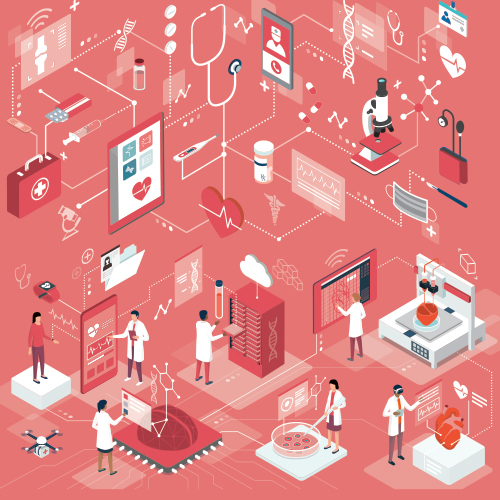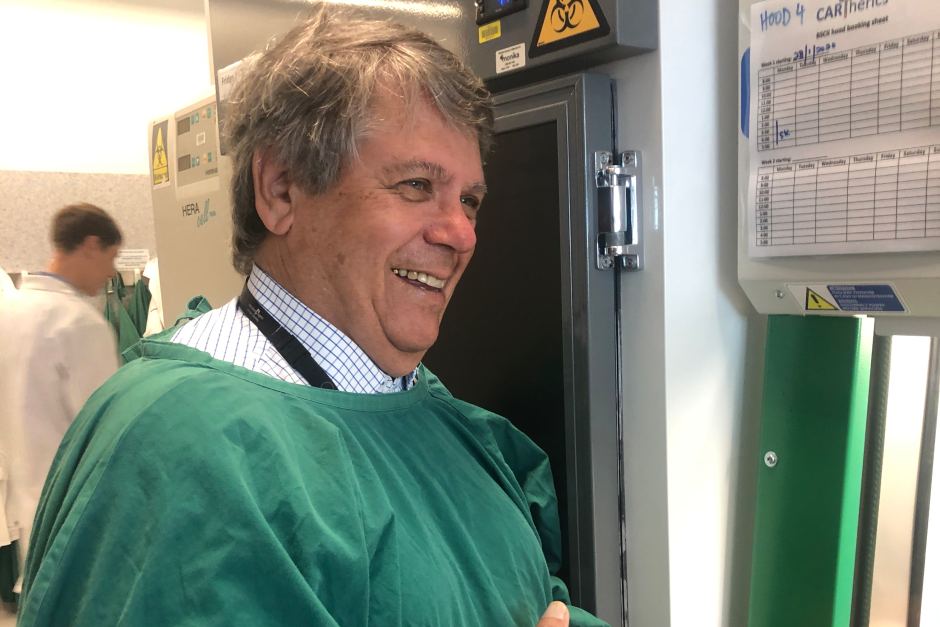Clone rangers
The success of immune therapies has impacted the present approach to cancer therapeutics. Three particularly exciting developments are monoclonal antibodies, checkpoint inhibitors and chimeric antigen receptor technologies (CAR-T).
Monoclonal antibodies are a fascinating breakthrough. Antibodies are protective proteins in the immune system that attack “foreign” substances like viruses and bacteria. To do this, they recognise and latch onto proteins called antigens.
Thanks to genomics, we can now identify antigen markers specific to an individual cancer. This lets us design specific therapeutic antibodies to bind to and kill tumour cells. These are called “monoclonal antibodies” because they come from identical, cloned immune cells.
The precision sequencing of tumour DNA in patients’ blood is a very rapidly expanding area of diagnostics. It’s revealing important variations within cancers traditionally considered to be of a single cancer type. This allows us to design specifically targeted therapies that transform patients’ lives.
Targeting cancer
Personalised cancer vaccines are also rapidly evolving. These make use of dendritic cells: tree-shaped cells that present antigens to the immune system and instruct it to make antibodies and disease-fighting white blood cells.
Scientists make cancer vaccines by taking the patient’s own dendritic cells and activating them with synthesised molecules (peptides) that are based on the specific gene mutations in the patient’s tumour.
No two people’s tumours are identical: their likely malignancy and spread vary considerably. Additionally, the rapid growth of tumours means that multiple gene mutations in tumour-starting genes (oncogenes) can develop.
Inheritance, mutation, and environmental influence can cause abnormalities in oncogenes and their regulation, which in turn causes cancer. Since each situation is unique, personalising therapy makes a lot of sense. Checkpoint inhibitor therapy is another exciting area of research.
Tumours sometimes use the immune system’s own regulators to protect themselves from it. Molecules called checkpoint inhibitors block these regulators and activate the patient’s immune system to hunt down and destroy cancers. This is particularly effective against melanomas.
In the blood
The most effective therapy for B cell blood cancers is CAR-T therapy. This involves genetically engineering tumour-recognising proteins called chimeric antigen receptors (CAR) into a patient’s own white blood cells. These CAR-T cells are multiplied in the lab then infused back into the patient.
When the CAR-T cells recognise and bind to the cancer cells in the patient, they signal the immune system to kill the tumour. CAR-Ts are incredibly effective at targeting a patient’s own specific tumour type, and are being studied for a wide range of cancers.
Presently, CAR-T therapy involves recovering and genetically manipulating the patient’s own white blood cells. However, cancer patients’ immune systems have often been impaired by long and debilitating chemo- or radiotherapy. This can make it hard to get enough cells for successful treatment.
“Off-the-shelf” CAR-T therapy is emerging as a useful alternative. By removing the major transplant barrier genes in donor cells, or choosing rare donors who are compatible with a high proportion of the population, doctors can use healthy cells that haven’t been subjected to chemo. This is also cheaper, because you don’t have to manufacture a unique product for every individual patient.
Accessing wellness
Unfortunately, precision medicines often cost many hundreds of thousands of dollars for any treatment. While there may be tolerance for expensively funding a few patients with rare diseases, the cost of mass precision medicine will be onerous for present health budgets.
The present health system won’t be able to provide public funding and insurance for these treatments unless major changes are implemented. We need to remember that keeping people healthy also has economic benefits. Helping patients meet the increased costs of these personalised therapies is an investment that will drive down the long-term costs of disease care.
The other great challenge is in training clinicians to use major data resources. That means collecting and interpreting individual patient information to make better diagnoses and therapeutic recommendations.
Our community’s health will increasingly be a partnership between patients, consulting clinicians and therapeutic providers. These relationships will be different to what we’re used to. Patients’ decisions and data inputs will have a bigger role than ever before.
All these changes are already happening. Medical practice, public health, government, health insurance and the community need to come together to be ready for them. It’s up to us to create an economically rational, emotionally comfortable and socially just health care system for all.










